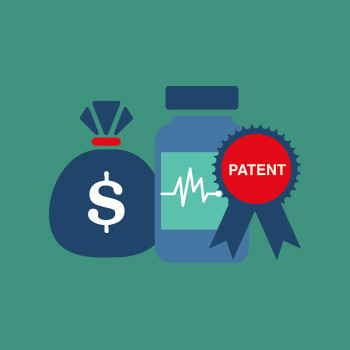
Tackling unmerited patents and over-pricing to support the government’s goal of universal access.
There were 19,000 people living with HIV in Belarus in 2016 according to UNAIDS, less than half (45%) were accessing antiretroviral therapy. Prevalence is highest among people who experience stigma and discrimination which affects their ease of access to services. This includes sex workers (6.8% prevalence), gay men and other men who have sex with men (MSM) (5.7%), and people who inject drugs (25.1%).
UNAIDS also reports that since 2010, new HIV infections have increased by 65% and AIDS-related deaths have increased by 13%. The government has committed to ‘ending AIDS’ through increasing prevention services and providing universal access to free treatment.
There are 5,000 reported cases of TB. Affordable treatment is currently being procured via the Stop TB Partnership and, like HIV treatment, is free of charge.
Hepatitis C prevalence is higher with 36,000 people diagnosed. Belarus’ government is scaling up harm reduction services to treat Hep C and reduce new infections. Hep C treatment (DAAs) is purchased and provided by the state for a limited number of patients who meet one of the following criteria: HIV/HCV co-infection, HBV/HCV co-infection, advanced liver diseases, and those infected in healthcare settings.
For all people in need to be treated for HIV, TB and/or Hep C sustainable pricing is a priority.
Access issues
Issues affecting the pricing and accessibility of medicines include:
- AbbVie has an evergreening patent on HIV drug, lopinavir/ritonavir (Eurasian patent until 23/08/2024). There have been several attempts by the government to supply generic versions of LPV/r, each attempt has been blocked by AbbVie.
- The price of patented drugs is high comparing to several neighbouring countries, including for dolutegravir (DTG), a key drug in HIV treatment.
- The prices for the main antiretrovirals purchased by the national program are several times higher than prices agreed when previously purchased by UNDP using Global Fund monies (prices compared in 2016).
- Lack of registration is also an issue, especially for many paediatric versions of HIV drugs.
Our focus
Our campaign partner, PMPLUS, is focused on obtaining strategic, long-term price reductions, and providing the government with relevant information to support its public health priorities.
PMPLUS, with partners, carried out a public discussion on price reduction. The resulting report was shared with the country’s health authorities which declared its commitment to the goal of reducing prices and to joint actions with the patient community.
As a result, an electronic auction-led procurement system was introduced, creating a more competitive environment by encouraging the participation of several additional national manufacturers.
The outcome was that the price of the main ARV regimens was reduced by 3.5-6.4 times. This significantly reduced the financial burden for the national health care system, which helps Belarus get closer to its goal of universal access, but there is still an even more significant amount of progress needed.
PMPLUS’ priorities include:
- To continue supporting the government in obtaining price reductions for all HIV, TB, Hep C drugs and other medicines. This includes direct negotiation with pharmaceutical patent-holders.
- Examine specific cases for revoking patents and/or enacting compulsory licenses on medicines where illegitimate evergreening patents have been granted.
- Improve the patent examination process so that unmerited patents are not granted in future.
Last updated February 2019.




